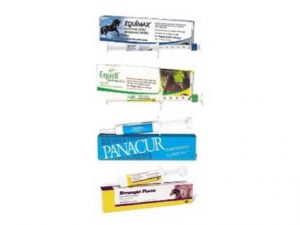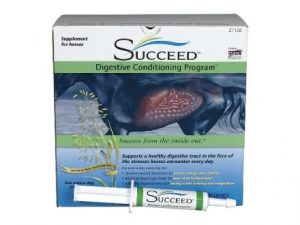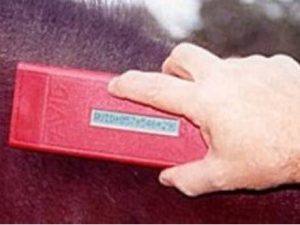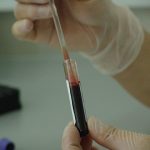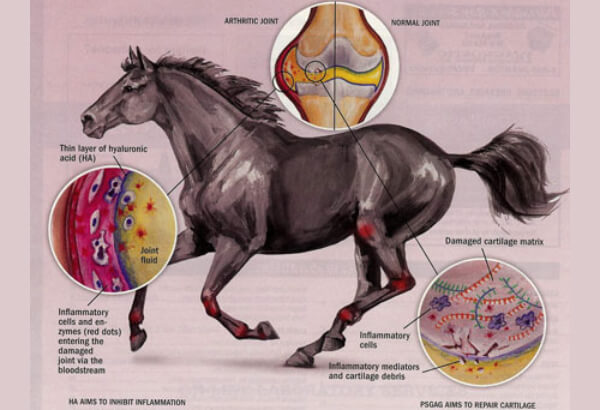
JOINT INJECTIONS
Dr. Garfinkel might inject medications into horses’ joints to combat such problems as synovitis and osteoarthritis (commonly injected joints indicated in red). Two of the main categories of medication they currently use are hyaluronic acid (HA) and polysulfated glycosaminoglycan (PSGAG).
At the most basic level, these medications aim to decrease inflammation in damaged or diseased joints. In more technical terms, HA is a normal’ constituent of joint fluid that contributes to viscosity. When inflammation develops in a damaged joint, cells and enzymes travel to the joint via the bloodstream and degrade and deplete natural HA. Injecting exogenous HA directly into the joint can help lubricate the cartilage and inhibit the action of potentially damaging inflammatory mediators.
Vets consider PSGAGs more “disease-modifying” than HA because they work on the collagen fibers and intercollagenous tissues comprising the cartilage matrix. They have been shown to inhibit the effects of various enzymes associated with cartilage degeneration.
This is why Dr. Garfinkel might administer one of these drugs alone or in combination or with other medications, depending on the horse’s stage of joint disease.






